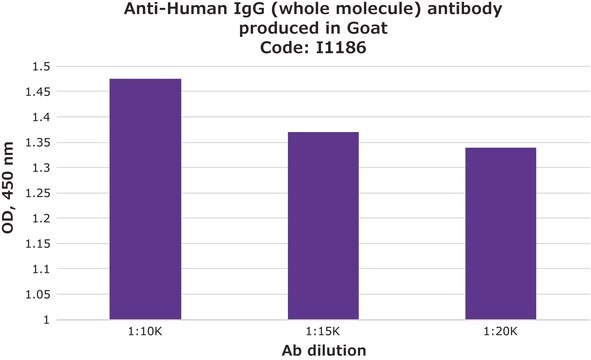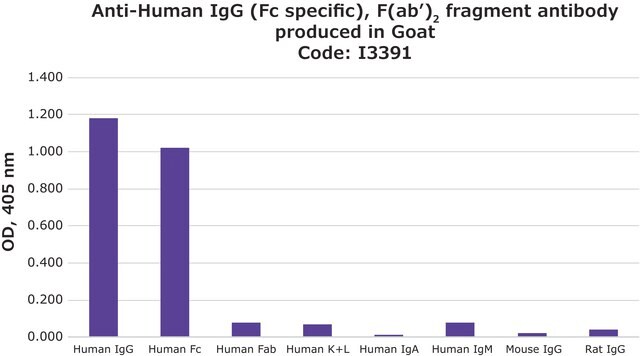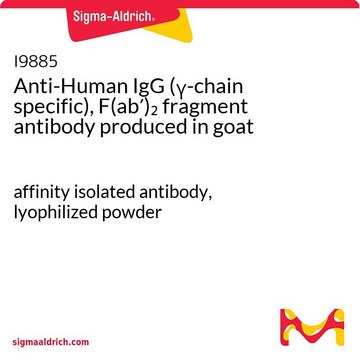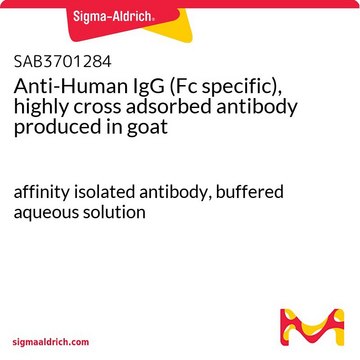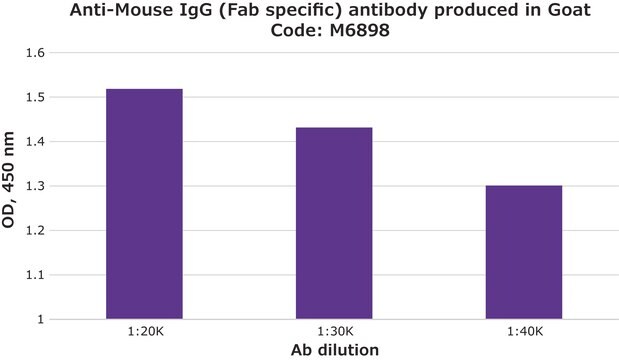I5260
Anti-Human IgG (Fab specific) antibody produced in goat
affinity isolated antibody, buffered aqueous solution
Sinonimo/i:
Fab-Specific Antibody
About This Item
Prodotti consigliati
Origine biologica
goat
Livello qualitativo
Coniugato
unconjugated
Forma dell’anticorpo
affinity isolated antibody
Tipo di anticorpo
secondary antibodies
Clone
polyclonal
Forma fisica
buffered aqueous solution
tecniche
indirect ELISA: 1:50,000
quantitative precipitin assay: 2.0 mg/mL
Condizioni di spedizione
dry ice
Temperatura di conservazione
−20°C
modifica post-traduzionali bersaglio
unmodified
Cerchi prodotti simili? Visita Guida al confronto tra prodotti
Descrizione generale
Specificità
Immunogeno
Applicazioni
- as starting material for conjugates using enzymes or fluorescent dyes
- in enzyme linked immunosorbent assay
- as a cross-linking antibody in internalisation of 125I-IgG by streptolysin-O-permeabilised cells
- as capture antibody in enzyme-linked immunosorbent assay (ELISA) for detection and semiquantitation of Fab
- in electrophoresis and immunoelectrophoresis
Azioni biochim/fisiol
Stato fisico
Esclusione di responsabilità
Non trovi il prodotto giusto?
Prova il nostro Motore di ricerca dei prodotti.
Codice della classe di stoccaggio
12 - Non Combustible Liquids
Classe di pericolosità dell'acqua (WGK)
WGK 1
Punto d’infiammabilità (°F)
Not applicable
Punto d’infiammabilità (°C)
Not applicable
Certificati d'analisi (COA)
Cerca il Certificati d'analisi (COA) digitando il numero di lotto/batch corrispondente. I numeri di lotto o di batch sono stampati sull'etichetta dei prodotti dopo la parola ‘Lotto’ o ‘Batch’.
Possiedi già questo prodotto?
I documenti relativi ai prodotti acquistati recentemente sono disponibili nell’Archivio dei documenti.
I clienti hanno visto anche
Articoli
Antibody-based serology tests are useful in identifying subjects with an adaptive immune response to the SARS-CoV-2 virus. Anti-human immunoglobulin antibodies allow for quick and simple, yet reliable assays with easy readouts and can also be adapted for high-throughput screening.
Il team dei nostri ricercatori vanta grande esperienza in tutte le aree della ricerca quali Life Science, scienza dei materiali, sintesi chimica, cromatografia, discipline analitiche, ecc..
Contatta l'Assistenza Tecnica.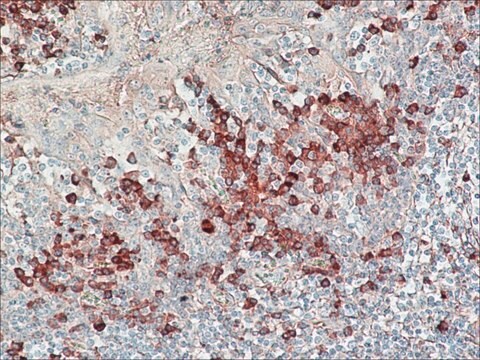

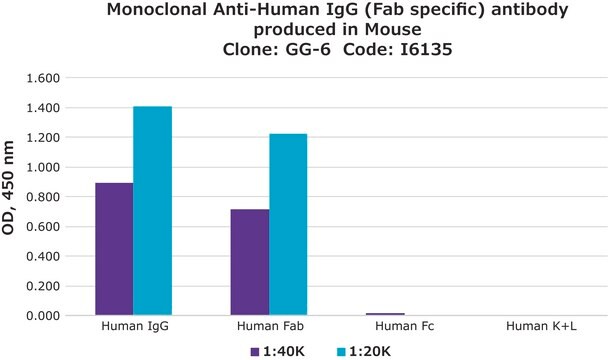
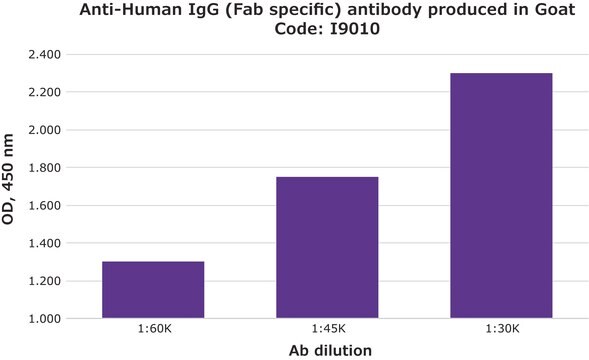
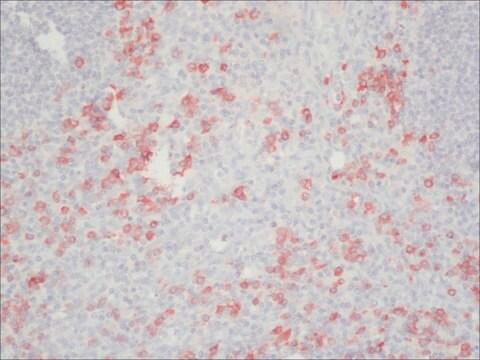


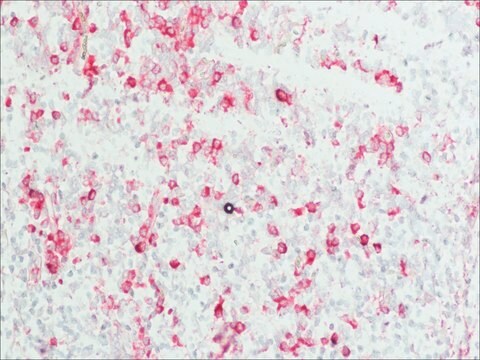


![Monoclonal Anti-Human IgG1 (Fab specific) [G1m(f)] antibody produced in mouse clone SG-16, ascites fluid](/deepweb/assets/sigmaaldrich/product/images/245/879/4f218cfe-aa20-409d-9449-056eba5e3d7b/640/4f218cfe-aa20-409d-9449-056eba5e3d7b.jpg)

